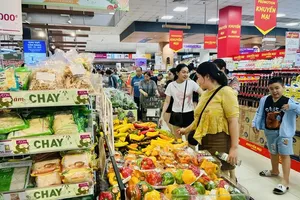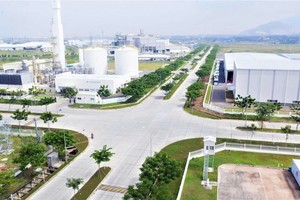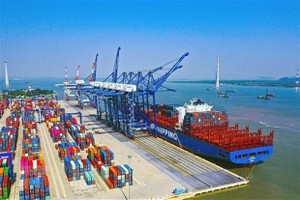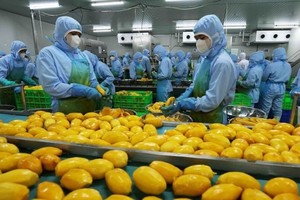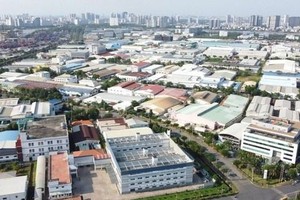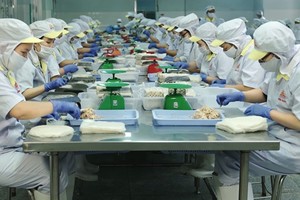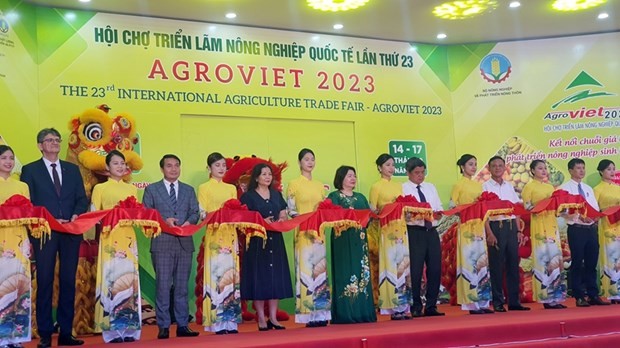 |
Representatives from agencies at the opening ceremony of the AgroViet 2023. (Photo: qdnd.vn) |
Hosted by the Ministry of Agriculture and Rural Development (MARD), the annual event is a pivotal gathering for Vietnam's agriculture sector, serving as a platform for both domestic and international agricultural businesses to showcase their products, highlight technological innovations, and strengthen business ties.
The three-day event features approximately 200 booths presenting high-quality products from regions in Vietnam as well as from countries such as China, the Republic of Korea, Australia, Russia, and ASEAN nations.
Meanwhile, on the same day, in Ho Chi Minh City, the European–American Market Department under the Ministry of Industry and Trade organized a workshop on bringing Vietnamese agricultural products and processed food to foreign distribution networks.
Nguyen Thao Hien, Deputy Director of the department, said that Vietnam has made breakthroughs in exporting agricultural products over recent years despite difficulties and changes in the world market and supply chains.
Vietnam has the advantages of geographical location, favorable natural conditions, and incentives from 15 bilateral and multilateral free trade agreements (FTAs) with many partners around the world. The Southeast Asian nation has maintained the growth of agricultural, aquatic, and food export turnover at double-digit rates for years and its export value reached US$53.2 billion in 2022. Many product groups saw a turnover of over US$2 billion such as wood, seafood, coffee, rubber, rice, cashews, and vegetables.
In 2022, Vietnamese agricultural products such as fresh bananas, sweet potato, bird's nest, grapefruit, longan, passion fruit, and durian were eligible to export to developed and high-standard markets around the world.
In 2023, despite challenges, including high inflation in major export markets, Vietnam's export turnover of agricultural, forestry, and fishery products is forecast to surpass the amount of US$50 billion. Currently, Vietnam is the world's largest supplier of cashew nuts and pepper, and the third largest supplier of rice, and coffee.
The export of vegetables and fruits is a bright spot in Vietnam's exports of agricultural products. Total exports are expected to reach the historic milestone of US$5 billion in 2023.
Le Thanh Hoa, Deputy Director of the Department of Quality, Processing, and Market Development under the Ministry of Agriculture and Rural Development, said that Vietnam has strengths in agricultural production and Vietnamese agricultural and food products are present in over 190 countries around the world.
However, most of the products are exported in the form of raw and semi-processed materials. Few of them are high-value-added products or developing branding to access large-scale distribution chains.
According to Hoa, for Vietnamese products to better penetrate international distribution systems, Vietnam's agriculture and food industry must quickly improve institutions and build a system of standards and technical requirements that are appropriate to the current situation and integration.
The country needs mechanisms to allocate and mobilize resources for training, managing, and supporting producers to ensure food quality and safety at all stages from production, harvesting, preservation, processing, and consumption in domestic and overseas markets.
In addition, it’s necessary to regularly update regulations, market analysis information, and consumer tastes to develop appropriate products, Hoa said.
